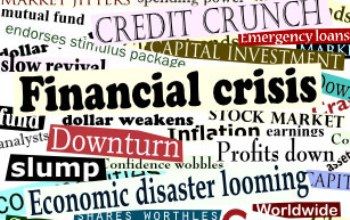One of the most popular posts on the Culture Matters website is one I wrote about Uncertainty Avoidance (titled: What is Uncertainty Avoidance? you can find it here).
There are a lot of comments on this post, and one, in particular, got me to write this one. The comment was:
“What is the Credit Crisis, and how does that relate to the United States’ low level on uncertainty avoidance?”
Although this is not a site on Economics, but on the cultural side of doing business, I will elaborate on how I think Uncertainty Avoidance, the Credit Crisis, and the USA are linked together.
How Did the US Get into the Credit Crisis?
As I said before, this site is not about Economics, and I’m not an Economist. But still here’s my simple explanation of what the Credit Crisis is (or was).
It “all started” in the USA where loans and mortgages were given to people who didn’t have the means to pay back the interests and the capital payments of those loans. The so-called Subpar Mortgages (here’s a good article from the Huffington Post stating that Wall Street knew those loans were bad in the first place).
This could give you the first clue when it comes to Uncertainty Avoidance: Moneylenders were willing to lend money to people whom they were not 100% sure if they could pay back those loans. In other words, they were willing to take the risk (=Low Uncertainty Avoidance).
The story goes on, and the credit crisis deepens, in that there are other financial companies that were willing to buy those bad loans in bulk, to see if they could make some profit out of it. Again an illustration of Low Uncertainty Avoidance; companies (=people) are willing to take risks with already risky “stuff” (the subpar mortgages).
All in all one thing leads to another, the United States gets into a recession/credit crisis, and we all know that if the US sneezes, the rest of the world catches a cold. Financially speaking then in this case.
How to Get Out of the Crisis?
The United States was the first country to be hit by the credit crisis. The one they had created themselves, due to the (cultural reason) fact that they were willing to take so much risk, which in the end turned out not to be manageable.
The cultural profile of the US is such that they were the first ones to get into this credit crisis, but that same cultural profile will predictably get them out of this crisis the first as well.
- Power Distance is Low: Americans will not wait for their government to intervene to make things better (although the Fed did run the biggest recovery program ever, pumping trillions of dollars into the US economy).
- Masculinity is High: Americans have a relatively strong Goal orientation. Goals should be seen in this context as the motivation to make things better than they currently are. To win. To compete.
- Uncertainty Avoidance is Low: As said before, Americans are willing to take risks. Sometimes these risks turn out bad. Really bad in this case. But the other side of the medal is that those same Americans are able to “reinvent themselves” much easier and faster than many other cultures in the world.
Conclusion
When you want to talk meaningfully about cultural differences, you can only do so by the grace of comparison. Culture is never absolute nor is one culture better than the other.
When you look at to origin and the (hopefully) end, and the in-between management of the 2008 credit crisis, you can clearly see that different cultures have dealt and are dealing with this differently.
The way the Eurozone dealt with the crisis is very different than the United States and Japan, just to name a few.
My prediction was and is that the US, as long as they keep having the financial power they currently still have, will get us in the next crisis, but they are also the ones that will get themselves and us out of it as well.
An article on employee motivation can be found here.
Tell me what you think!
- 195 Managing Diversity for Growth with Emmanuel Daniel - 14 October 2025
- 194 Leadership and Culture with Adam Malone - 16 September 2025
- 193 Cultural Differences in Sales with Adam O’Connor - 2 September 2025


